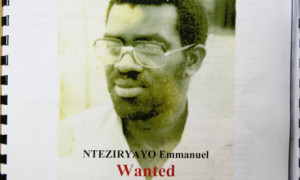London Metropolitan Police have said that they have arrested five Rwandans accused of genocide in theirnative country.
The men have been identified by police as Emmanuel Ntezirayo, 51, from Manchester, Charles Munyaneza, 55, from Bedford, Celestine Ugirashebuja, 60, from Walton-on-the-Naze, Essex, Dr Vincent Bajinya, 52, from Islington, North London and Celestine Mutabaruka, 57, from Ashford, Kent.
All five have been arrested on suspicion of their involvement in the 1994 Rwandan genocide. They were apprehended by the Metropolitan Police at their home addresses at 6:30am on 30 May.
Ntezirayo, Munyaneza and Ugirashebuja were all mayors of provincial towns at the time and stand accused of organising massacres. Bajinya, a medical doctor, is accused of inciting people during meetings at his house in Kigali and setting-up roadblocks, while Mataburaka, then the head of an agricultural project, faces similar charges.
The arrests follow an extradition appeal from prosecutors in Rwanda, who are seeking to put the men on trial for crimes against humanity.
Four of the five men have appeared in court already, when in 2009 they won a High Court case to halt their extradition. The judges then ruled that there was a “real risk” that the men would not receive a fair trial in their native country. They had been in custody since 2006.
But it has since been acknowledged that “significant progress” has been made with regard to concerns over fair trials since the 2009 ruling.
In a statement, Rwanda’s chief prosecutor, Martin Ngoga, welcomed the announcement. He pointed to recent extradition rulings by Norway and the European Court of Human Rights in Strasbourg as important potential precedents for the current case.
Although there is currently no extradition treaty between the UK and Rwanda, the Crown Prosecution Service said that already in March a bilateral Memorandum of Understanding had been drawn up between the two countries with specific regard to these five individuals.
The agreement coincided with a high-profile visit to Rwanda by the UK Foreign Secretary William Hague that same month, on which he was accompanied by film actress Angelina Jolie, Special Envoy for the United Nations High Commissioner for Refugees. Both made highly publicised visits to the Genocide Memorial.
The genocide, which took place over the course of approximately 100 days in 1994, had a death toll estimated as being between 500,000-1,000,000, or up to 20% of the Rwandan population. The victims were mostly of the Tutsi ethnic minority, targeted by Hutus in the culmination of a longstanding ethnic rivalry dating back to the colonial period. Many Hutu moderates, supporting the Tutsis, were also killed.
Prosecution for the genocide has been a long and complex process. Since 1995, 93 of the most high-profile suspects have been tried by the UN International Criminal Tribunal for Rwanda, based in Tanzania. In addition, Rwanda itself has tried an estimated two million suspects through its “gacaca” system of community courts. It is thought that 65 percent of those tried were convicted.
Yet although the twenty-year anniversary of the genocide is fast approaching, many of the perpetrators are still at large. Many are thought to be living in Europe.
Ngoga now hopes that the British courts will proceed quickly, so that the men can soon “face justice” in their home country. He said that all five had a “case to answer”.









